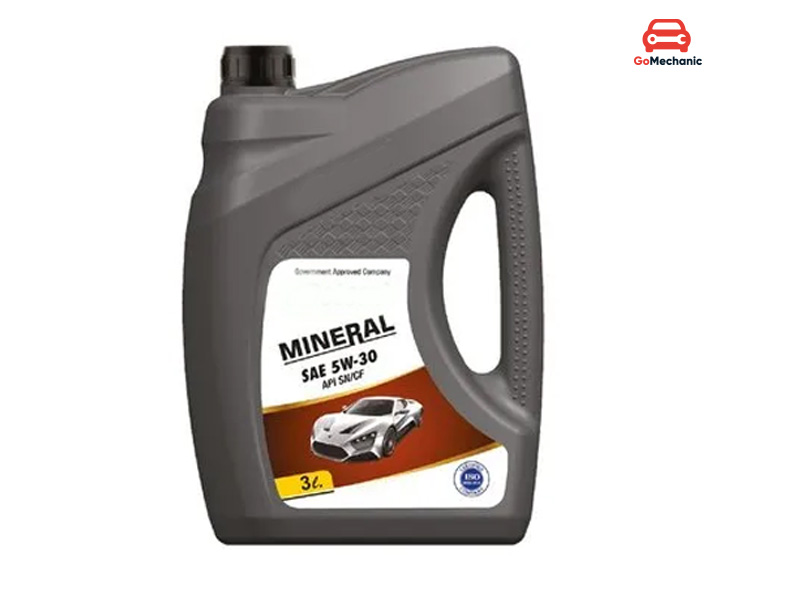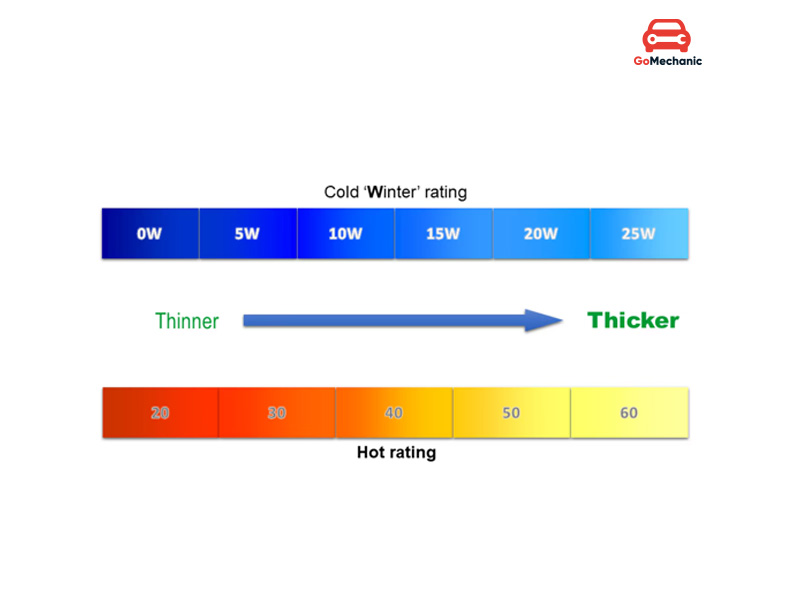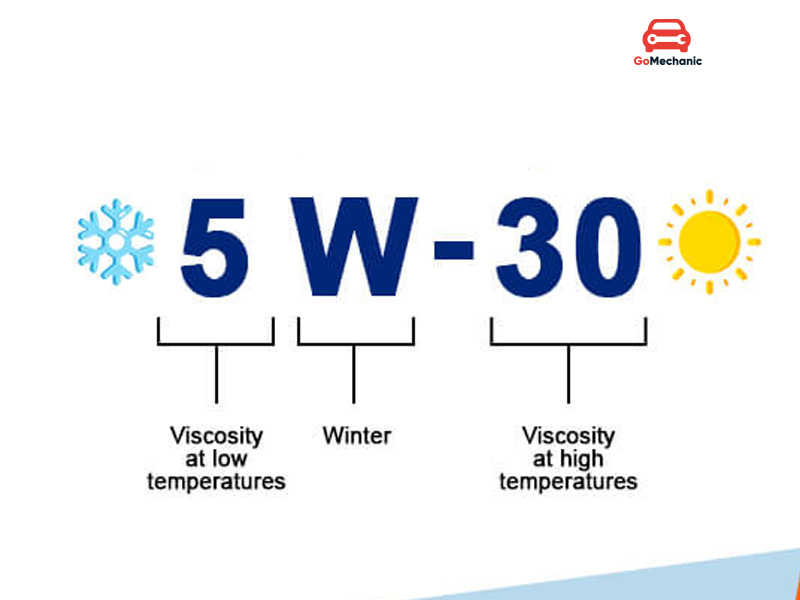Engine oil. The lifeblood of your car’s heart. It doesn’t just lubricate, it keeps the combustion cycle alive, steady, and efficient. Cooling the engine, sealing piston rings, and ensuring every moving part works in harmony. Let’s break down what this unassuming liquid really does for your car.
- Provides Lubrication
The motor oil lessens the friction amongst the various components of the engine during the combustion cycle. By providing a thin layer of oil, parts of the engine do not rub each other harshly. Thus oil reduces the wear and tear. - Neutralizes Acids
During the process of combustion, fuel and as well as the oxidization of other lubricants produce acids. This automotive oil is responsible for neutralising these acids. - Cleans out Sludge
Engine oil keeps the engine clean, washing away residue that builds up over time. But if sludge clogs its path, the engine could choke, slowing everything down. - Inhibits corrosion and oxidation
Another function of motor oil is preventing corrosion. Motor oil protects the cylinder blocks from rust.
So now we know Engine oil keeps the heart of your car beating smoothly. But here’s the catch, not every engine drinks the same oil.
Yes, different engines require different engine oils to function and operate normally. The car manufacturer recommends the motor oil based on the parameters of your car. You ought to know the grade of the oil your car needs as well. This will help you get the best performance from your motor. A good oil will also increase the lifespan of the engine.
Know This! 7 Questions You Should Ask About Your Car Oil
What are the types of engine oils?
Before you go ahead and purchase any engine oil, know what type of oil your hatchback, sedan or SUV requires. It is essential to understand what goes into your car. This is after all the deciding factor that ensures that the engine runs smooth, slick and efficient.

There are three kinds: mineral, semi-synthetic, and synthetic.
Mineral Engine Oil
This is the crudest kind of automotive oil. Mineral Engine oil is considered as the genesis that paved the way for modern motor oils. Mineral oil is essentially refined petroleum oils which undergo treatment to function under a wide range of temperatures. Besides, mineral oil is cheaper in the market compared to the other two varieties. Nowadays, we use mineral oils in older vehicles and motorcycles.
The biggest problem with mineral oil is that they offer little to no lubrication and protection against friction-induced heat. Also, they perform very inefficiently in colder temperatures. They are also much susceptible to breakdown during high-temperature uses. Mineral oil requires more frequent replacement as well. They don’t last for more than 5000 km.
Semi-Synthetic Engine Oil
Semi-synthetic oil sits between mineral and full synthetic, like a careful compromise. It brings the affordability of mineral oil but steps closer to the performance of synthetic. On paper, it can provide up to three times more protection than mineral oil.
Called a synthetic blend, it mixes a touch of synthetic oil into mineral oil—just enough to improve viscosity and resist wear under high heat and stress. It even performs better in the cold than pure mineral oil, stretching its utility across more conditions without stretching your budget as much.
But it’s not flawless. It won’t match the full synthetic when it comes to ultimate engine protection. That’s the trade-off.
Full Synthetic Engine Oil
This is the cutting edge in motor oil technology. Full synthetic oils deliver excellent protection and contribute to greater fuel efficiency.
Synthetic oils go through extensive treatment in the laboratory. The process breaks down the mineral oil into the most basic molecules. This makes them significantly superior to their counterparts. This also helps remove any impurities to a very high degree. The molecules of synthetic oil are also very consistent in their size and shape, offering superior lubrication. Full synthetic oil functions at their optimum in both low or high temperatures, or under extraordinary stress.
The science behind manufacturing synthetic engine oil is an expensive and painstaking one, which makes synthetic oils significantly costly.
What are Engine Oil Grades?

Engine oils have got different grades. SAE has graded them based on their viscosities. Viscosity is the quantity expressing the internal friction of the fluid. Different motor oils have different viscosities at room temperature. They also react differently to temperature changes.
What do viscosity numbers mean?

Viscosity is about how oil resists flowing. Two numbers explain it. The first that comes before “W” (Winter). It shows how the engine oil behaves when cold, like during start-up. The second tells you how it flows when the engine warms up, doing what engines do best. Simple.
What does 20W-40 mean in engine oil?
The automotive oil grade is in the form of an alpha-numeric code. Let’s see what each character that makes up the code means:
- The first number is followed by a ‘W’. Here the W stands for Winter and represents how the oil will react to a cold start.
- In simple words, the number preceding W represents the parameter. Tells us how the oil will flow in cold conditions.
- The smaller the number, the better will be the flow. For instance, a 5W-30 oil will have a better cold flow than 10W-30 engine oil.
- The number in the following part indicates how the finely the oil will flow at normal operating temperature.
At normal operating temperatures, 10W-30 oil flows more easily than 10W-40. Less resistance with smoother movement. It’s not magic, just how it’s made.
Grades of Engine Motor Oil

Take a look at some internationally used grades of engine oil:
- 0W-20 This oil flows like water when your engine is cold, making it easier to start. The “0” in 0W-20 means it’s as thin as it gets when the engine is at rest. But as the engine heats up to its usual temperature, the oil thickens to a “20,” balancing smooth movement and protection.
- 0W-30 Think of this as a chameleon for your engine. At cold starts, it acts like a lightweight “0” oil. Once things heat up under the hood, it adjusts to the thicker “30” weight, offering stability when the engine runs hot.
- 0W-40 This one starts just as light as the others, “0” when cold, but when the engine is at full throttle, it holds its form at “40,” giving extra protection. Perfect for engines that demand more at high temperatures.
- 5W-30 This is the all-rounder of oils in India. “5” at start-up makes it slightly thicker than a “0,” but it still flows well. At operating temperature, it settles at “30,” which most Indian carmakers trust and recommend. You’ll find it on every shelf for a reason—it works.
- 5W-40 5W-40 is the fully synthetic motor oil which performs like a 5 weight engine oil when experiencing a cold start. It acts like a 40 weight oil once the engine reaches normal operating temperature.
- 10W-40 10W-40 is the automotive oil which offers a 10 weight performance in the cold starting temperature. On the other hand, it provides a 40 weight performance at the normal operating temperature of the engine.
How to Choose the Right Grade of Engine Oil?
When choosing engine oil, here’s what you should do:
- Start with your owner’s manual. It’ll tell you the right viscosity grade and specs.
- Look for oils that meet API SN or ILSAC GF-6 standards—don’t compromise here.
- Match the viscosity to your climate and how you drive. Think cold mornings or long highway stretches.

For an in-depth explanation, here’s your guide to choosing the right kind of automotive for your car
Conclusion
Motor oil is indispensable to your car engine. It makes sure that the motor works in the best condition possible. So which automotive oil should you go for? This would depend on the car you drive as well as where you drive it. However, remember to choose the manufacturer-specified engine oil for your car.
Also, look out for your car and get the oil changed periodically. Wondering who the best person is to service your car? Think GoMechanic. We are here to assist you!
Read: Buying a Second Hand Used Car? | Dealership or Private Seller?
FAQs
1. Which grade is best in engine oil?
It’s not about “best,” it’s about what your engine asks for. A 5W30 might be the friend your modern car needs, flowing easily in cold starts and keeping its calm at high temperatures. But if you are running a heavier machine or driving under extreme heat, 15W40 could be the old-school workhorse you lean on. Always check your car manual. It knows your engine’s soul better than anyone else.
2. What does ISO mean in oil?
ISO is like a passport for the oil, a standard that says, “Yes, I meet the global expectations.” It stands for the International Organization for Standardization, making sure your oil isn’t just any random liquid but a well-behaved, consistent performer across the world.
3. Is Castrol GTX synthetic?
Not entirely. Castrol GTX is a mineral oil, built with additives that fight engine sludge. But synthetic oils like Castrol EDGE or Mobil 1 don’t come from the earth in the same way. They are Engineered, not extracted..
4. What are the 3 grades of engine oil?
You’ve got monograde, multigrade, and synthetic.
- Monograde oils are the one-season wonders.
- Multigrades are like shapeshifters, adjusting to temperature changes (think 5W30, 10W40).
- Synthetic oils are the modern marvels that are designed for precision and endurance.
5. What is C3 and C4 oil?
C3 and C4 are categories for diesel engine oils, as per ACEA standards. C3 focuses on low emissions and keeping your engine’s guts clean. C4, a step up, is more for specific engines demanding sulfur-free lubrication. In simpler terms,They care about the planet, but not at the cost of power..
6. Is 5W40 better than 5W30?
Neither is “better.” They serve different masters.
- 5W30 flows thinner, which means fuel efficiency and better cold starts.
- 5W40 stays thicker at high temps, offering more protection if you are revving hard or driving in hotter climates.
It’s like choosing between running shoes and hiking boots. You pick based on the journey.
7. What is No. 1 engine oil?
There’s no crowned king. Mobil 1, Shell Helix, Castrol EDGE. Eeach has its fan base. The real answer lies in what fits your engine’s needs and your driving habits. Marketing might call one “No. 1,” but your engine cares about compatibility, not hype.
8. What does 15W40 oil mean?
It’s a multitasker.
- The “15W” means it stays fluid enough to start engines in cold conditions up to -15°C.
- The “40” tells you it won’t break down easily in high heat, up to 40°C or more.
Think of it as a steady companion, built for balance.
9. Which oil is better: 10W30, 20W40, 10W40, or 15W40?
It’s not a competition; it’s context.
- 10W30: Best for fuel efficiency in smaller engines.
- 20W40: Built for older engines or hotter climates.
- 10W40: A balance between smooth cold starts and heat resistance.
- 15W40: For heavy-duty workhorses, diesel engines, and trucks.
Your car manual holds the cheat code here.
10. What grade of engine oil for my car?
It is best to consult the manual; newer cars use low-viscosity 0W-20 for fuel efficiency, while high-mileage engines suit 10W-40 for better sealing. Turbocharged engines often require 5W-30/40.
11. What’s thicker, oil 5W30 or 10W30?
10W30 is thicker than 5W30 when the engine is cold, that’s what the “10W” vs “5W” tells you. Once the engine heats up, both behave like 30-grade oil so the difference disappears. In simple words, 5W30 flows easier at startup while 10W30 stays heavier until it warms.
12. Which grade of engine oil is best for a car?
Synthetic 5W-30 balances cold-start protection and high-temperature stability, and is the best grade engine oil. It is better to avoid generic “multi-grade” oils; premium synthetics like Mobil 1 reduce sludge.
13. Should I use 5W30 or 5W40?
5W-30 suits standard Indian climates; 5W-40 is better for turbocharged engines, extreme heat, or frequent towing due to enhanced film strength.
14. What is no 1 engine oil?
Mobil 1 Extended Performance (shear stability), Shell Helix Ultra (high detergency) and Castrol EDGE are recommended for high-revving engines are few of the best engine oil.
15. Which engine oil grade is best?
It really depends on the car, the engine, and the climate you drive in. 5W30 is usually the safe all-round choice for most modern petrol cars in India, but diesels or older vehicles may need 10W40 or 15W40. The best answer is always in your owner’s manual because engines are tuned for specific grades.
16. What is C1, C2, and C3 in engine oil?
These are ACEA classifications that tell you how the oil performs in modern engines with catalytic converters or DPFs. C1 is thinner, aimed at maximum fuel economy, C2 balances economy with wear protection, and C3 is thicker and designed for high-performance engines. Car makers specify which one you need, so it’s not a pick-and-choose.
17. Is 5W30 good for hot weather?
Yes, 5W30 is perfectly fine for hot climates, including Indian summers, because the “30” grade is stable at high temperatures. But if you’re driving long distances in extreme heat, carrying heavy loads, or using a diesel SUV, something like 10W40 or 15W40 could give extra cushioning. For most city cars though, 5W30 works without a problem.
18. Is 10W-40 thicker than 5W-30?
Yes, especially in elevated or high temperatures 10W-40 oil is thicker than 5W-30.This shows that it offers a better protection in hot conditions. But it might take sometime or maybe bit longer to flow when the engine is cold.
19. Which is better, API SN or SL?
API SN is the one to choose. It’s a newer and more advanced standard than SL, granting better protection, cleaner engines, and performance gains.
20. Can I go for API SP in place of SL?
Yes indeed. API SP is the latest and is much compatible with the SL. This also offers more superior protection against wear, deposits and low-speed pre-ignition.
21. What is 0W-40 oil for?
0W-40 oil is used in cars that require amazing and really great performance in both cold also in hot weather conditions. It flows readily during cold starts and remains stable at the highest engine temperatures.







[…] Must Read: Engine Oil Grades Explained | Know Your Car Engine Oil […]
[…] Read Engine Oil Grades Explained | Know Your Car Engine Oil […]
[…] Engine oil grades are something that is usually printed on the engine oil cans with combinations of letters and numbers like 10w-30 oil etc., Even though, most of the understanding that these numbers imply temperature, these gradings don’t mean temperatures. […]
[…] Must Read: Engine Oil Grades Explained | Know Your Car Engine Oil […]
The motor oil lessens the friction amongst the various components of the engine during the combustion cycle. By providing a thin layer of oil, parts of the engine do not rub each other harshly. Engine oil reduces the wear and tear.
What you choose for your vehicle really matters a lot. So, car owners need to understand the different grades of the engine/motor oil and why they are significant for the performance of the vehicle. Engine efficiency is directly related to the type of engine oil that you choose for the vehicle so consider buying a high-grade engine as I do. It will give more power, more torque, and better life to your vehicle’s engine.
I have a 1982 corvette which calls for SF 10W30. Very hard to find. Have any suggestions?
I wait your answer
[…] Engine oil grades are something that is usually printed on the engine oil cans with combinations of letters and numbers like 10w-30 oil etc., Even though, most of the understanding that these numbers imply temperature, these gradings don’t mean temperatures. […]
Sir/mem. Mujhe grade me kuch confused hi use clearing karni h pls mujhe ye sanjhay k 0W16, 0W20, 0W30, 5W10, 5W20, 0W30, 10W15, 10W20, 10W30, 10W40, 15W30, 10W40, 5W30, and iske baad bhi koi oil hai to mujhe bataya or samjhaye me SAUD AUTOMOBILES CAR SERVICE workshop chala raha hoo mujhe customer ko smjhana bahut mushkil hota hai abhi
Shaikh Bhai!
Customer ko humara blog dikhaa dijiye
wo samajh jaenge!
Thank you for sharing your insights on this topic. Your post has given me a fresh perspective.